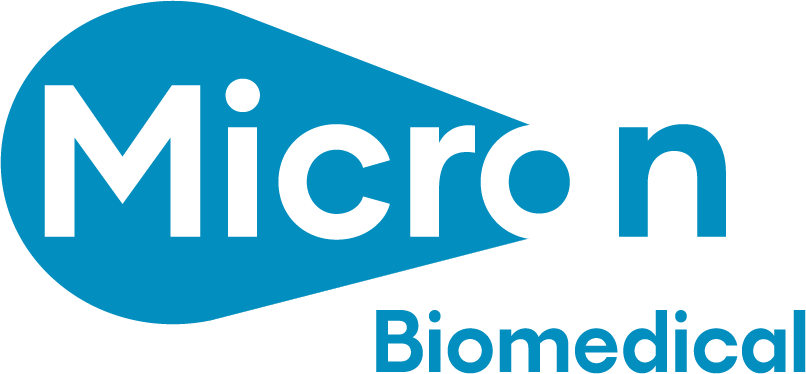- Micron’s technology class, prioritized by the World Health Organization and others for eradicating disease, demonstrates tolerability, safety and immunogenicity of a measles and rubella vaccine
- Micron’s technology will be evaluated in additional clinical trials within the next 12 months
ATLANTA, May 1, 2024 /PRNewswire/ — Micron Biomedical, a life science company developing first-in-class dissolvable microarray-based products that simplify and improve the transport, storage, and administration of drugs and vaccines, today announced the publication of its positive Measles and Rubella (MR) Phase 1/2 trial data in The Lancet Medical Journal. A comment in the same issue discussed implications of the data and recognized microarray technology for its potential to be “game-changing in humanitarian settings.”
The landmark study demonstrated positive safety and immunogenicity of Micron’s MR vaccine microarray technology in the first study of its kind in adults and children as young as nine months. Microarray technology has been identified as the highest global priority innovation for overcoming immunization barriers in low- and middle-income countries by the Vaccine Innovation Prioritisation Strategy (VIPS) Alliance–a consortium between the World Health Organization, GAVI, UNICEF, PATH and the Bill & Melinda Gates Foundation. In the same issue, the needle-free technology is recognized for its potential to be “game-changing.”
“Making injectable pharmaceuticals available without needles has the potential to eradicate disease in low- and middle-income countries as well as to make treatments and vaccines more accessible in developed nations and among military personnel,” said Micron Biomedical CEO, Steven Damon. “Following the recognition of the urgent need for Micron’s needle-free dissolvable microarray technology by global health, regulatory and commercial leaders, this publication in the esteemed The Lancet Medical Journal is important recognition of its safety and immunogenicity by the scientific community.”
In low- and middle-income countries, measles remains a leading cause of death, primarily due to infrastructure-related barriers to conventional vaccine access such as refrigeration for transport and storage and ample clinicians. Micron’s needle-free version of the measles-rubella (MR) vaccine based on its proprietary microarray technology reduces the need for cold chain and allows for self-administration by applying the microarray technology to the skin and pressing a button that indicates vaccine delivery. The administration of the vaccine is virtually pain-free.
“We have the tools to eliminate measles and rubella. However, to achieve and maintain elimination, programs aim to vaccinate at least 95% of their target population. In many places, particularly in low- and middle-income countries, this goal isn’t reached due to hurdles communities face in vaccinating all children. These barriers include the need for travel to vaccination sites, having enough trained healthcare professionals to provide injectable vaccines, and keeping vaccines at the correct temperature for transport and storage,” said James Goodson, Senior Scientist and Epidemiologist in the Global Immunization Division at the Centers for Disease Control and Prevention (CDC), and co-investigator for the study. “That’s why deploying next generation vaccines is a top global health priority, particularly for efforts to achieve global measles and rubella elimination.”
The Micron Biomedical study—the first clinical trial ever to evaluate microarray technology in children—was a double-blind, double-dummy, randomized, age-de-escalation study conducted by the Medical Research Council Unit in The Gambia (MRCG). Participants included eligible 18- to 40-year old adults, 15- to 18-month old toddlers and nine- to 10-month old infants. Micron’s MR microarray technology was well-tolerated and safe with a robust immune response comparable to subcutaneous injection. All local reactions were mild. There were no related serious adverse events.
Last year, Micron Biomedical announced receipt of a $23.6 million grant from the Bill & Melinda Gates Foundation that will fund mass production of Micron’s needle-free vaccines and enable commercialization of the first microarray technology-based measles-rubella vaccine, indicated for children as young as 9 months, once approved by the appropriate regulatory authorities following additional clinical study.
Micron’s microarray technology has also generated positive clinical data in influenza and is being evaluated in other indications including additional infectious diseases, contraception, diabetes treatment and weight loss.
About Micron Biomedical’s Microarray Technology
Micron’s technology uses a dissolvable microarray “button” that is applied directly to the skin, and when pushed, delivers the vaccine or therapeutic directly into the uppermost dermal layers–painlessly–and can be self-administered or administered by a caregiver or parent. Drug delivery is complete within moments and the technology can be removed from the skin and discarded as non-sharps waste within seconds to minutes of administration. Micron’s technology is thermostable and reduces the need for cold chain transport and storage, enabling medications to be shipped virtually anywhere.
About Measles and Rubella
Measles and rubella are viral diseases that can lead to serious health complications or death. The infections can cause brain damage, blindness and deafness. Measles can also cause pneumonia and diarrhea and rubella can lead to heart disorders. In unvaccinated pregnant women, rubella can cause miscarriage, stillbirth or birth defects. Measles and rubella are vaccine-preventable diseases.
About Micron Biomedical
Micron Biomedical is the leader in dissolvable microarray-based, drug and vaccine administration technology. Micron Biomedical is a clinical-stage life science company on a rapid path to commercializing its proprietary dissolvable, microarray technology. Micron’s technology is designed to improve access and achieve better health outcomes globally through injection-free, painless, and simple and/or self-administration of drugs and vaccines, and by eliminating or reducing the need for cold chain transport and storage, enhancing safety and efficacy, and improving patient compliance. Micron partners with and/or receives funding from private and public pharmaceutical and biotech companies, the Bill & Melinda Gates Foundation, the Centers for Disease Control and Prevention (CDC), PATH and the Georgia Research Alliance. For more information visit www.micronbiomedical.com
